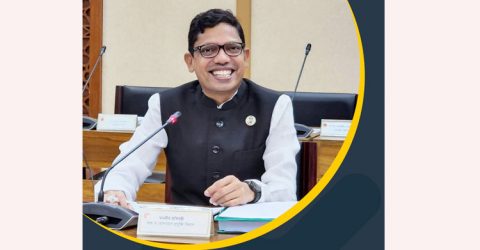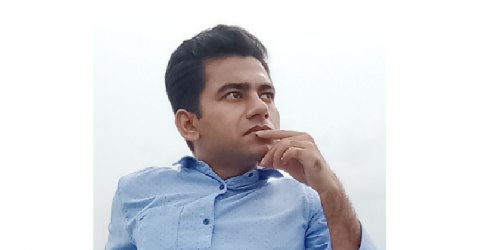
Gazi Md. Abdur Rashid
Change is the law of nature. The rapid growth of industrialization and urbanization results in change in social setups, social institutions as well as social patterns of human life. As such the existing social standards, social institutions and social norms fail to meet human needs. Therefore there arises a need for change in such social elements. Such change will encourage growth and development in the society. There is no reason to escape from change; rather we have to prepare ourselves to survive in the changing scenario through proper and quality education. Social change may take place in different forms such as economic change, political change, religious change, scientific and technological change, legal change, moral change etc. It is a continuous process, where one change is followed by another. Education is considered as a major agency of socialization. No social change can take place without education. It initiates social change by bringing about a change in the outlook and attitude and patterns of social relationships of an individual.
Education plays that role by imparting knowledge about science & Technology, new social patterns, social institutions, modernization and other specialized branches of knowledge. Remarkable changes are brought by education in the different aspects of an individual’s life and an individual is prepared to participate in different social works and activities; so as to make his contribution for the progress and development of the society. The relationship between education and society is thus mutual i.e, either education influences changes in society or society in education. But in both the cases education has a role to play. Education plays an important role in analyzing a change that takes place in the society. As it provides knowledge to the people regarding the nature and form of change, the society can therefore decide about the adaptation of a change. In the absence of education they may not be able to know about what is good or bad pertaining to a change and will adopt without analyzing pros and corns of each change.
In school children learn social skills through interactions with teachers and other students. They learn how to relate to different personality types, to work through disagreements, to problem-solve, and to exercise self control. (Granted, not every child learns all of these skills or develops them at the same pace, and some children may possess anti-social tendencies due to influences in their lives which make them resistant to socialization). Perhaps most importantly, school reinforces the concept that actions and choices have consequences. All of these factors influence the social development of the individual, thereby increasing the likelihood that he or she will become an agent for positive social change.
“Education is the most powerful weapon which you can use to change the world.” said Nelson Mandela. Education is the medium through which we can change the world. It helps us to turn weakness into strength, failure into success. It helps us in identifying problems present around us in our society and also helps us in searching for their solutions. It helps us in increasing the mental ability of a person which in turn changes the way a person thinks. This results in the change of pattern of social relationship and hence, it may cause social change. One of the main impetuses of education is to change the attitude, thinking and lifestyle of a person. While lived experiences may not be formal education, it’s a form of hands-on learning that teaches us the tools to care about one another, cultivating a more curious and compassionate community through: (1) Gaining knowledge of other cultures, (2) Participating in intercultural exchange, (3) Seeing new ways of life, (4) Learning how to communicate with different personalities, (5) Considering other belief systems and ways of life, (6) Self-reflecting on your own beliefs and where they come from.
Formal education works in a similar way, providing social lessons and teaching skills that encourage the following: (a) Relating to different people and building friendships, (b) Identifying problems and coming up with your own solutions, (c) Exercising self-control, both verbally and physically, (d) Accepting that actions have consequences, (e) Gaining a sense of responsibility and civic duty, (f) Practicing thoughtful leadership, (g) Asking questions about things you don’t understand, (h) Thinking about the best ways to speak and listen. Education plays an important role in molding the structure of a society. The role of education as an agent of social change is widely recognized. The socialization of the young generation and maintenance of proper social order is among one of the main functions of education.
Education modernizes the attitudes, aspirations and outlook of individuals to a great extend and helps in eradication of social evils like caste system, untouchability, dowry system etc. In this way the social patterns of the people changes. There is no discrimination of caste, colour or creed when we travel in a passenger bus. By bringing such changes in the society, education helps in promotion of equality and integration. In other words education removes social evils and stabilizes democratic values like equality, integrity, freedom etc. Education brings about the changes in the customs, traditions, social & political institutions. It makes these institutions capable of addressing the current needs of the society. The obsolete customs and blind traditions are replaced by modern thoughts. Social evils like female infanticide are eradicated from the society by educating people through public awareness programs with the help of electronic and print media. Education plays a predominant role in bringing about social changes. We may say it is a passport to social change. Without education the knowledge of social changes can’t be gathered and will thus hamper the process of social change.
The Writer is Research Officer, District Education Office (Secondary), Munshiganj




